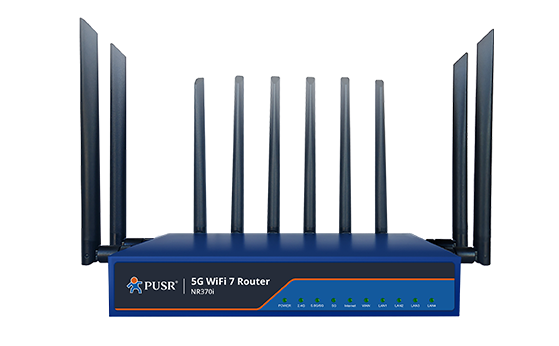In today’s fast-evolving world of automation, IoT, and digital transformation, the industrial router stands as one of the most essential components powering connectivity across industries. Whether it’s manufacturing, energy, logistics, or smart cities, businesses rely heavily on these robust networking devices to ensure seamless communication between machines, systems, and people. In this article, we will explore what makes the industrial router so vital, how it works, and why it’s the foundation of reliable industrial networking.
What Is an Industrial Router?
An industrial router is a specialized networking device designed to provide secure and stable internet or intranet connectivity in harsh industrial environments. Unlike standard home or office routers, industrial routers are built with high durability, extended temperature tolerance, and protection against dust, vibration, and humidity.
These routers serve as gateways for machine-to-machine (M2M) communication and the Internet of Things (IoT) applications. They connect various devices such as sensors, PLCs (Programmable Logic Controllers), and monitoring systems, enabling smooth data transmission across industrial networks.
In simple terms, the industrial router acts as the communication bridge that connects operational technology (OT) and information technology (IT), ensuring efficiency, security, and scalability within industrial infrastructures.
Key Features of an Industrial Router
Modern industrial routers are equipped with advanced features that make them suitable for rugged applications. Some of the most important features include:
1. Rugged Design
Industrial environments can be tough — with high temperatures, dust, moisture, and constant vibrations. An industrial router is built with a rugged casing and industrial-grade components to withstand these conditions. They are often designed to function efficiently in extreme temperatures ranging from -40°C to +75°C.
2. High Reliability and Uptime
Downtime in industrial operations can be costly. Industrial routers are designed to provide uninterrupted connectivity with redundant power supplies and failover mechanisms. Many models support dual SIM cards for cellular redundancy, ensuring the network stays online even if one connection fails.
3. Secure Communication
Data security is a top priority. These routers use VPNs, firewalls, encryption protocols, and authentication systems to ensure secure communication between remote devices and central systems. This prevents unauthorized access and protects sensitive operational data.
4. Multiple Connectivity Options
An industrial router supports multiple network interfaces such as Ethernet, 4G/5G LTE, Wi-Fi, and serial ports. This flexibility allows integration with a wide range of devices, from older industrial machines to modern IoT sensors.
5. Remote Management
With built-in remote management capabilities, industrial routers allow network administrators to configure, monitor, and troubleshoot systems from anywhere. This feature is especially beneficial for remote or distributed industrial sites.
Applications of Industrial Routers
The industrial router is used across various sectors due to its versatility and reliability. Let’s take a closer look at some real-world applications:
1. Manufacturing and Automation
In factories, industrial routers enable communication between PLCs, robotic arms, and monitoring systems. They collect data from machines, send it to cloud platforms, and allow engineers to make data-driven decisions in real time.
2. Smart Cities
Industrial routers power smart infrastructure, including traffic control systems, public Wi-Fi, and surveillance networks. Their high-speed connectivity ensures smooth data flow across urban systems, improving efficiency and safety.
3. Energy and Utilities
From power grids to oil and gas pipelines, industrial routers facilitate remote monitoring and control. They help operators detect system failures early and prevent costly downtime.
4. Transportation and Logistics
In logistics and fleet management, industrial routers are used in vehicles to track routes, monitor performance, and ensure real-time communication with central control centers.
5. Agriculture
Smart farming technologies use industrial routers to connect irrigation systems, weather sensors, and agricultural equipment. This helps farmers optimize resource usage and improve crop yields.
Benefits of Using an Industrial Router
Choosing an industrial router offers numerous advantages beyond simple connectivity. Here’s why they’re indispensable to industrial environments:
-
Enhanced Network Stability: Industrial routers are built for consistent uptime, ensuring uninterrupted operations.
-
Scalability: As businesses grow, more devices can be added to the network without performance degradation.
-
Cost Efficiency: By enabling remote management and predictive maintenance, these routers reduce operational costs.
-
Improved Security: Advanced encryption and authentication protect networks from cyber threats.
-
Future-Ready Connectivity: With support for 5G and IoT protocols, industrial routers are ready for next-generation industrial networks.
How to Choose the Right Industrial Router
Selecting the right cellular router depends on the specific needs of your operation. Here are some important factors to consider:
-
Environmental Conditions – Evaluate temperature range, humidity, and exposure to dust or vibration.
-
Network Type – Determine if you need wired (Ethernet) or wireless (4G/5G, Wi-Fi) connectivity.
-
Data Throughput – Choose a router that can handle your required bandwidth and data transfer rates.
-
Security Requirements – Look for routers with advanced encryption, VPN support, and firewall protection.
-
Management Tools – Ensure the router supports remote monitoring and cloud management for easier maintenance.
By assessing these factors, businesses can choose an industrial router that perfectly matches their performance and safety requirements.
The Role of Industrial Routers in the IoT Era
The rise of the Internet of Things (IoT) has significantly increased the demand for reliable network solutions. The industrial router plays a crucial role in connecting millions of devices that gather, process, and share data across industrial ecosystems.
As industries move toward digital transformation, industrial routers will continue to serve as the backbone of connectivity — enabling real-time analytics, smart automation, and predictive maintenance. They not only support operational efficiency but also lay the foundation for Industry 4.0 and beyond.
Conclusion
The industrial router is far more than just a networking device — it is the nerve center of modern industrial communication. Its ruggedness, reliability, and adaptability make it indispensable in industries where performance and uptime are critical.
As technology continues to evolve, industrial routers will play an even greater role in connecting intelligent machines, remote systems, and IoT platforms. Businesses that invest in these advanced routers today are building the strong digital infrastructure necessary to compete and thrive in the connected world of tomorrow.
